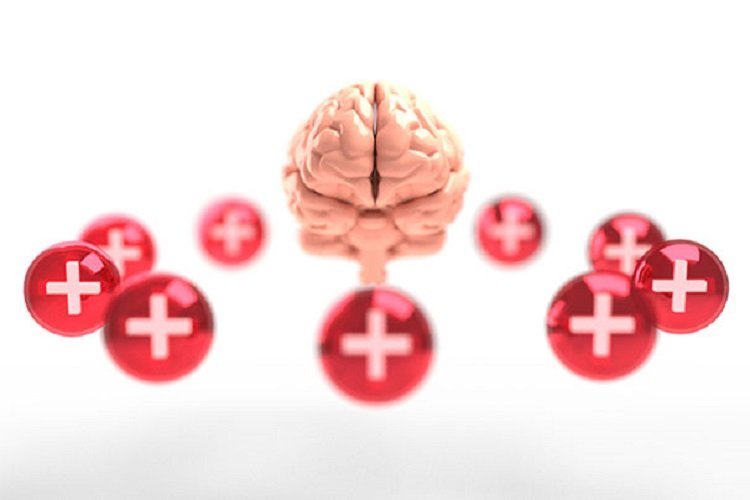Mental health is directly connected to physical health. There is an invisible link between the two.
People having chronic mental disorders have a higher risk of experiencing bad physical ailments. Doctors say depression is as bad for your body as smoking. Untreated mental disorders affect the quality of your life and lead to serious physical health issues.
Your mind and body should be in perfect sync, and when it isn’t, your work productivity and family life get hampered.
Why does mental illness affect your physical health?

Charles Goodstein, MD, a clinical professor of psychiatry at the Langone School of Medicine said that the brain is directly connected to our endocrine system. He said,
“Thoughts and feelings as they are generated within the mind [can influence] the outpouring of hormones from the endocrine system, which in effect control much of what goes on within the body,”
The professor further points out that many people who visit doctors with physical health issues like lethargy, headache, and weakness have an underlying depression. These people don’t realize that they have depression. But when doctors inspect the root cause of the problems, they find that patients are suffering from depression.
Further, as the Greene Psychology Group points out on their blog, “Self-care is one of the first things to slide when depressed. You lose energy for even the most minor daily tasks, including things that make yourself feel better. You stop eating right, fulfilling daily household responsibilities and caring for yourself as you should. Maybe you stop taking a daily shower or even brushing your teeth. This atrophy can lead to physical health issues as well down the line.“
How does mental illness affect your physical health?
Mental disorders are detrimental to physical health. The question is how? Let’s discuss it here.
1. They increase the chances of heart disease: Depression increases the risk of cardiovascular diseases. According to the Canadian Journal of Diabetes published in August 2015, depressed people have a 14% higher risk of suffering from heart disease.
Schizophrenia increases the risk of death from cardiovascular disease. This is probably because people with mental disorders are less likely to get proper medical attention and care that their body demands. They are less likely to do routine checkups like cholesterol, blood pressure, weight, etc. These routine checkups are vital since they help to detect symptoms that might affect physical health condition, especially their heart badly.
It’s tough to deal with patients suffering from schizophrenia. Since they live in an imaginary world, so it’s tough to convince them to give up smoking or drinking alcohol or munching junk foods.
2. They increase the likelihood of diabetes: Studies have shown that there is a link between diabetes and depression. But more research is required to reach the final conclusion.
According to the Canadian Mental Health Association, both schizophrenia and depression can lead to the development of type 2 diabetes due to their harmful effects on the body’s resistance to insulin. The risk of developing diabetes is high amongst people with a medical illness.
Psychiatric medications often lead to obesity and cholesterol. These factors can again lead to diabetes.
3. They increase the probability of osteoporosis: Osteoporosis mainly occurs due to low bone mass. It makes people fragile and increases the likelihood of fracture. Studies reveal that schizophrenic patients are more likely to experience low bone density, osteoporosis, and hip fractures. Schizophrenia can double your chances of developing osteoporosis due to the following reasons:
- Antipsychotic medications can increase your prolactin level.
- Unhealthy lifestyle factors like excessive smoking, drinking, physical inactivity, and vitamin D deficiency can lead to osteoporosis.
4. They lead to insomnia in certain cases: Too much stress, depression and anxiety leads to sleep disorders. People are unable to sleep worrying about various matters. Sometimes, people go to bed at the proper time yet they are unable to sleep throughout the night. Dark circles evolve under the eyes and lead to fatigue, which again hamper work productivity. It’s like a vicious cycle. When an individual is fatigued and depressed, he can’t focus at work. His performance at work goes down, and that leads to loss of wages. When someone’s income gets affected, he becomes more depressed and can’t sleep properly at night.
5. They lead to high blood pressure: Depression increases your stress hormones like adrenaline and cortisol. This interferes with blood pressure control. Several studies have found that depression leads to hypertension and that increases the blood pressure.
What else can happen to your body?

Mental health medications have some dangerous side effects. Some of the side effects include a change in the sexual drive, frequent urination, lack of appetite, drowsiness, headache, blurred vision, dry mouth, etc.
4 Tips to take care of your mental and physical health
There are various ways to take care of mental and physical health. Let’s talk about them one by one.
1. Eat healthy at home – A healthy diet is important for our physical and mental well-being. A healthy and nutritious diet contains a balanced amount of protein, vitamins, minerals, carbohydrates, fats, and water. These elements make a significant impact on the prevention and management of mental health issues like Alzheimer’s and depression. See 7 tips for healthy eating at home.
2. Exercise every day – Exercise helps to keep your mental and physical state in great shape. Studies show exercise helps to release chemicals like endorphins which make you feel happy. Even a short walk for 10 minutes can make you feel energetic. It can elevate your mood and make your mind alert. Try this 30-minute exercise for your upper body.
3. Stop smoking: Smoking is injurious to your health. Several people believe that smoking helps to alleviate stress. It’s a kind of stress buster. But the fact is something different. Smoking gives temporary relief but in the long run, it makes a negative impact on your brain.
Patients suffering from depression and schizophrenia have a tendency to smoke more than other people. The nicotine in cigarettes elevates the dopamine level in the brain temporarily. Dopamine gives positive feelings and makes a person feel light. But nicotine has a negative side too. Nicotine stops the brain’s natural mechanism to make dopamine.
Do you understand its implications? It means that in the long run, you’ll be more dependent on nicotine to get that positive feeling. You’ll harm your brain even more.
4. Try meditation: Meditation helps to relax your body and mind. It calms your agitated nerves and lowers your blood pressure by 5 millimeters of mercury gradually. No matter what problems you’re in, meditation can help you deal with it in a systematic way.
Is there any other solution?
Mental illness is a burning issue in our country. But there are ways to tackle it. An experienced psychiatrist can give you the right medicines and suggest therapies to make you feel better.
Yes, medicines do have side effects. This is where the expertise of the psychiatrist is required. A good psychiatrist can prescribe a combination of medicines that help to neutralize the harmful effects of each other. He can suggest you the right dosage you need.
Therapies like cognitive behavioral therapy, antidepressant medicines, and electroconvulsive therapy can help to combat depression, anxiety disorders, and many other health issues. You need to consult a good psychiatrist for that.
Act as per the advice of your psychiatrist and bring healthy changes in your lifestyle. Get plenty of sleep, do meditation and exercises to calm your restless mind and body.

Conclusion
Give attention to your mental health before it affects your body. If you’re unhappy or stressed out for months after months, then consult a good mental health clinic in your locality. Take action before your brain disorder starts affecting your body.
Author bio: Ralph Macey works at SavantCare, a mental health clinic providing integrative approach to psychological well-being. His work involves removing the social stigma associated with chronic mental disorders like schizophrenia, bipolar disorder, dementia, ADHD, depression, loneliness, PTSD, etc.

